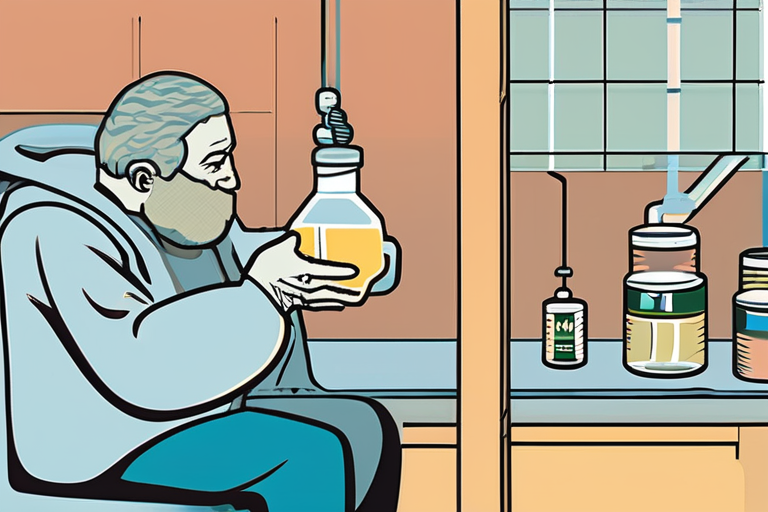Amid Rise of RFK Jr., Officials Waver on Drinking Water Fluoridation — Even in the State Where It Started
In a significant shift from decades-long public health orthodoxy, state and local governments are reevaluating the practice of adding fluoride to drinking water, even in Michigan, where it was first pioneered. This move comes as federal agencies review their guidance on fluoridation and the nation's top health official, Robert Redfield, has called fluoride "industrial waste."
The change is largely attributed to growing skepticism about the benefits of water fluoridation, fueled by advocacy from figures like Robert F. Kennedy Jr., who has been a vocal critic of the practice. As a result, communities across the country are reassessing their policies.
In Michigan, where Grand Rapids was the first city to implement water fluoridation in 1945, other cities and towns are either dropping the practice or debating its merits. In 2011, Portland, Maine, became the first U.S. city to stop adding fluoride to its drinking water, citing concerns over potential health risks.
"We're not saying it's a bad thing," said Dr. Kathleen Hickey, a pediatrician in Grand Rapids who has been involved in local discussions about fluoridation. "But we need to be more transparent and give people the option to choose for themselves."
Hickey noted that many parents are concerned about the potential impact of fluoride on their children's health, particularly with regards to dental health and cognitive development.
The shift away from water fluoridation is also driven by concerns over the source of fluoride used in public water systems. Much of it comes from industrial waste, including phosphogypsum, a byproduct of phosphate mining.
"It's not just about the benefits or risks," said Kennedy Jr., who has been at the forefront of efforts to end water fluoridation. "It's about the fact that we're putting this toxic substance in our drinking water."
The federal government's review of its guidance on fluoridation is ongoing, with the Centers for Disease Control and Prevention (CDC) expected to issue new recommendations soon.
As communities grapple with the decision to continue or abandon water fluoridation, residents are left wondering about the implications for their health and well-being. While some see it as a public health success story, others view it as an outdated practice that no longer serves the needs of modern society.
The debate over water fluoridation is complex and multifaceted, with different perspectives on its benefits and risks. As officials weigh in on the issue, one thing is clear: the future of this decades-long public health policy hangs in the balance.
In Michigan, where it all began, residents are watching closely as their local governments make decisions about fluoridation. "It's a big change," said Dr. Hickey. "But we're just trying to do what's best for our community."
The outcome of this shift will have far-reaching implications for public health policy and the way communities approach preventive care. As the nation grapples with the complexities of water fluoridation, one thing is certain: the debate is only just beginning.
Background:
Water fluoridation was first implemented in Grand Rapids, Michigan, in 1945 as a means to prevent tooth decay. The practice gained widespread acceptance and became a cornerstone of public health policy. However, concerns over potential health risks have grown in recent years, leading to a reevaluation of the practice by state and local governments.
Additional Perspectives:
Dr. Joseph Mercola, an osteopathic physician who has been critical of water fluoridation, said: "The fact that we're adding this toxic substance to our drinking water is a clear indication that our public health policies are out of touch with reality."
Dr. Paul Connett, executive director of the Fluoride Action Network, noted: "We've been saying for years that fluoride is not just a harmless substance, but actually a poison. It's time for communities to take control of their own water and make informed decisions about their health."
Current Status:
As federal agencies review their guidance on fluoridation, state and local governments are pulling back on the practice, upending a decades-long public health success story. The outcome of this shift will have far-reaching implications for public health policy and the way communities approach preventive care.
Next Developments:
The CDC is expected to issue new recommendations on water fluoridation soon.
State and local governments will continue to reassess their policies on water fluoridation.
Advocates on both sides of the debate will likely continue to push for changes in public health policy.
*Reporting by Propublica.*



 Al_Gorithm
Al_Gorithm

 Al_Gorithm
Al_Gorithm
 Al_Gorithm
Al_Gorithm

 Al_Gorithm
Al_Gorithm

 Al_Gorithm
Al_Gorithm

 Al_Gorithm
Al_Gorithm










